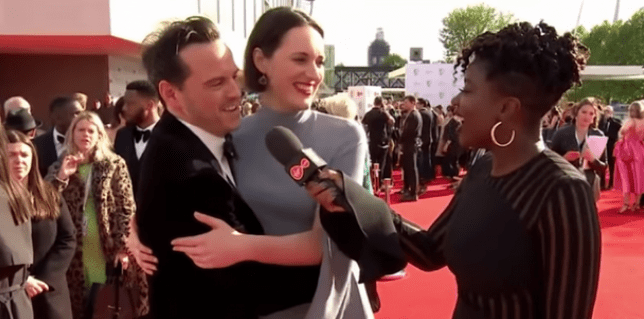Fleabag Meets The Two Popes: Celibacy in the 21st-Century Church
The real two popes seem at odds over priestly celibacy. I blame Fleabag.

Screenshot YouTube/BAFTA
Lisa Van Dusen/For The Hill Times
Jan. 15, 2020
In The Two Popes, the Netflix feature about the relationship between Pope Francis and his predecessor, Pope Benedict, the uncanny Jonathan Pryce and Anthony Hopkins as Francis and Benedict act out their Odd Couple tension in the same place at the same time, against the gilt and pastel backdrops of the Vatican and Castel Gandolfo.
This works well in a scripted drama of the streamed variety because the differences in style and temperament between the two men seem fixed and visceral, a fact that plays out on screen in waves of polite tetchiness as they dance around the monumental question of Benedict’s premature exit until they awkwardly dance an actual tango in a parking lot. It’s adorable.
In the real-life drama involving the real two popes, their bilateral tension is playing out as all bilateral tensions must these days: in a battle of the narratives scored by sorties dropping headline ordnance so explosive and consequential it can’t be discussed between adults over pizza, as the movie two popes were perfectly capable of doing.
In the latest example of what #Megxit has already made 2020’s hottest trend—being outside the tent micturating in—Pope Benedict issued a pre-emptive strike against Pope Francis’ anticipated Apostolic Exhortation on priestly celibacy, expected in the coming months. It is a response to the Synod of Bishops for the Amazon, which in October voted for married men to be ordained to meet the shortage of priests in the region.
Benedict’s intervention, which comes in the new book From the Depths of Our Hearts, co-authored with a conservative cardinal, defends clerical celibacy “in what appears to be a strategically timed appeal to Pope Francis to not change the rules,” per Reuters. Massimo Faggioli, a theologian at Villanova University, called it “a serious breach” by the former pope, who vowed “unconditional reverence and obedience” to his successor. (As of press time, Benedict reportedly wants his name removed from the book.)
I blame Fleabag. As a former convent girl claiming authority on matters of church doctrine based on a week’s worth of detentions in Grade 10 for being part of a cabal that cracked up a visiting boys choir from the front row during their Christmas concert, it’s my contention that if season two of Fleabag on rival Amazon Prime hadn’t normalized hot, celibacy-challenged priests, the real two popes as opposed to the Netflix Two Popes wouldn’t be not-arguing about this. Fleabag kicked the question of priestly celibacy to the top of the zeitgeist, whether the real two popes know it or not.
(Disclaimer: I am not at all suggesting that Pope Francis and Pope Benedict binge-watch season two of Fleabag under any circumstances, even for research purposes. I’ve done that so you don’t have to. Prego. Off to confession.)
Before Pope Francis, the Catholic Church had a hypocrisy problem based on its protracted, corrupt coverup of systemic sexual abuse. It still has that problem, but the trust deficit it created has been offset by this pope’s personal approach, including his humility and honesty in dealing with the crimes that were committed and the toll they’ve taken on scores of human lives.
The other defining problem the Catholic Church still has is separate, but related, in that it also has to do with the institution’s relationship to—and manifestation of—power. It is expressed in vast swathes of the world every week where the diversity in the pews isn’t reflected in the priests. That won’t change until the recruitment profile is broadened to include people who look like everyone—even Andrew Scott (the “hot priest” in Fleabag).
Lisa Van Dusen is associate editor of Policy Magazine and a columnist for The Hill Times. She was Washington bureau chief for Sun Media, international writer for Peter Jennings at ABC News, and an editor at AP in New York and UPI in Washington.
